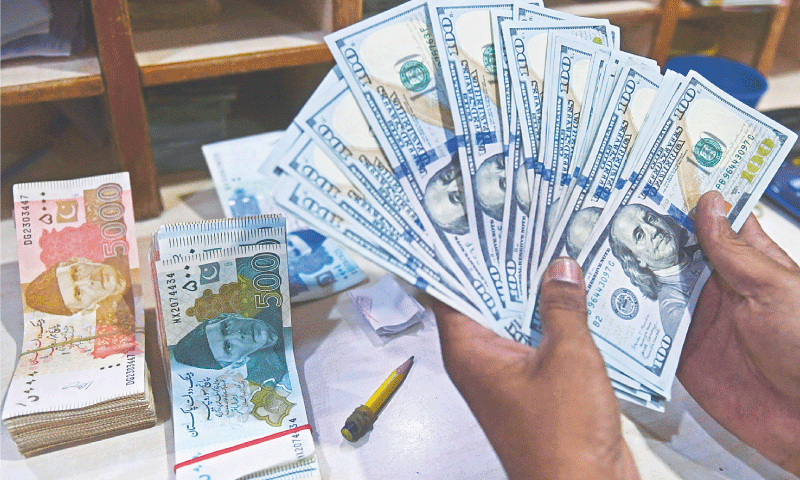KARACHI: Sources in the financial sector claim that the sustained stability of the exchange rate has drawn foreign investors to treasury bills (T-bills), as evidenced by the rise in inflows observed in the first 15 days of this month.
According to the most recent data from the State Bank of Pakistan, market treasury notes attracted $13.863 million in the first 15 days of March FY24.
Despite the ongoing political unrest and the weak economic performance, financial market professionals find this trend encouraging.
The key cause, according to analysts, is the stable currency rate, which hasn’t changed in almost three months and reassures investors that there is “less risk.”
T-bills are a profitable wager for overseas investors due to their stable exchange rate.
Domestic bonds in Pakistan yield returns of 21.66% on three-month T-bills, 20.39 % on six-month papers, and 20.89 % on 12-month papers. Although investors can withdraw their gains and make new investments in dollars, returns are paid in Pakistani rupees.
Prior to the advent of Covid-19, foreign investors found the domestic bonds to be very appealing. After the epidemic, the majority of the investments did, however, return. The nation has been yearning for fresh investors ever since.
Although it is difficult to predict how long the exchange rate will be sustainable, experts say that investors should take heart from the current steadiness. Despite the lack of growth in foreign direct investment this year, T-bill and equity inflows have surged dramatically in FY24.
Total T-bill inflows totaled $80.4 million between July 2023 and March 15, 2024, indicating growing investor interest. This month, the central bank has kept the interest rate at a high 22 percent, but inflation has not changed. Experts predict that T-bill inflows could increase in the upcoming months, assuming the exchange rate stays consistent, due to the high interest rate and stable exchange rate.
According to some currency specialists, the IMF is ignoring the exchange rate management that is taking place at the current rate. In the interbank market on Monday, the dollar was trading at Rs378.13.
The SBP’s foreign exchange reserves rose to $8 billion last week, and additional enhancements are anticipated from anticipated IMF inflows of approximately $1.1 billion.
In addition, the nation intends to introduce up to $350 million in Panda Bonds into the Chinese market. Should these bonds be successful, they would help Pakistan pay off its debt.
Assuming $1 billion is required to pay maturing euro bonds next month, debt servicing in FY25 might reach up to $25 billion. $441 million was given to the nation in FY24, according to SBP data, of which $330.5 million was invested in equity and $80.4 million was purchased in T-bills.
Similar to the previous caretaker finance minister, the new administration feels that Pakistan needs an additional IMF package of up to $8 billion to help stabilize its economy.








